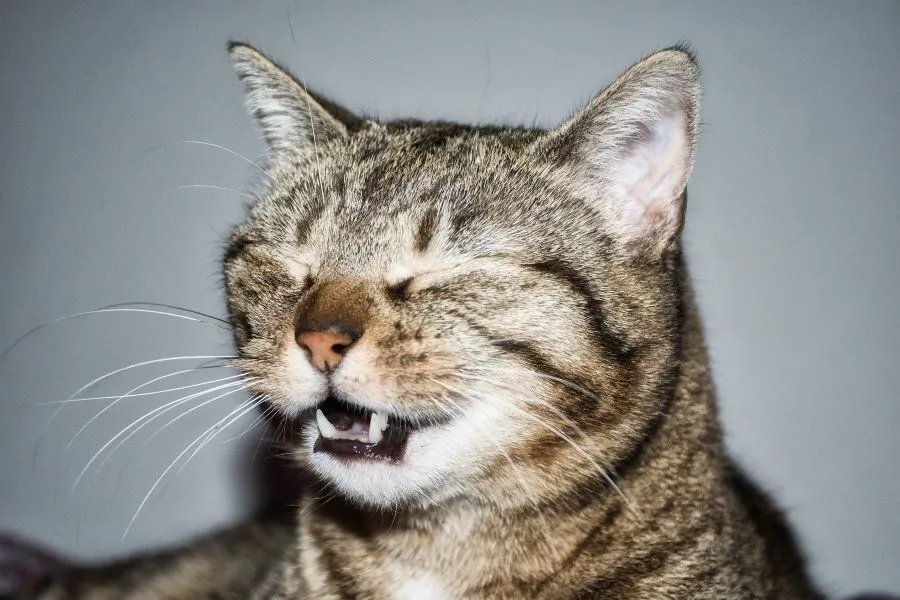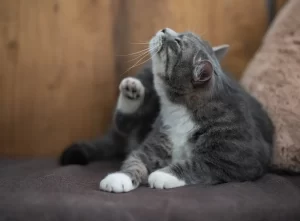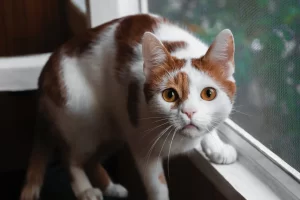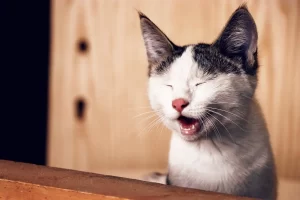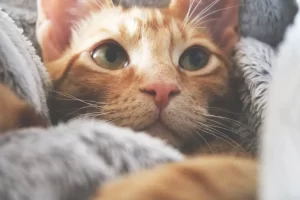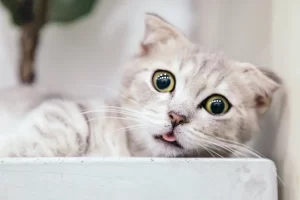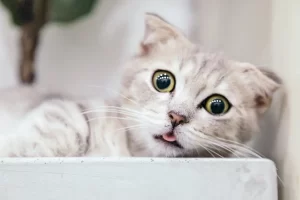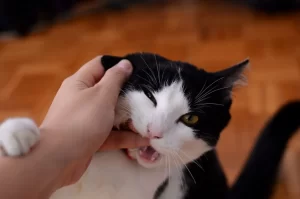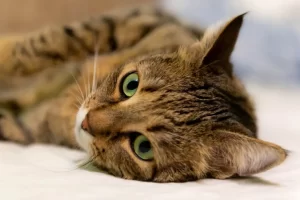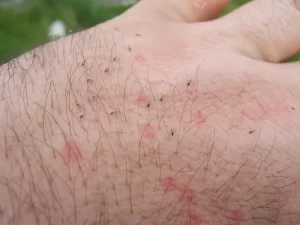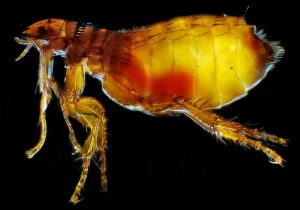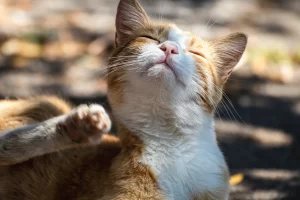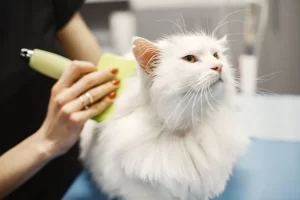Cat sneezing can be a common occurrence, and it may have various causes, including allergies, infections, irritants, or even just a tickle in the nasal passages. Sneezing in cats can be uncomfortable and bothersome, affecting their overall health and well-being. While veterinary care should always be sought for persistent or severe sneezing, many cat owners also explore home remedies for cat sneezing to help alleviate symptoms and provide relief for their furry friends. In this article, we will delve into the world of home remedies for cat sneezing, exploring various options ranging from steam inhalation and saline nasal drops to herbal remedies, nutritional remedies, environmental modifications, and traditional remedies from different cultures. We will discuss the potential benefits, instructions, precautions, and considerations for using these home remedies, along with important reminders to consult with a veterinarian before trying any new treatments on your feline companion.
Table of Contents
ToggleCat Sneezing: Causes, Impacts, and Insights for Cat Owners
Cat sneezing is a reflex act of forcefully expelling air through the nose due to irritation or inflammation of the nasal passages. It is a common symptom in cats and can be caused by various factors, including viral or bacterial infections, allergies, foreign objects in the nasal passages, environmental irritants, and other respiratory conditions. Cat sneezing can impact a cat’s overall health and well-being by causing discomfort, disrupting normal breathing, affecting appetite, and potentially indicating an underlying health issue. Chronic or recurrent sneezing in cats may require veterinary attention to determine the underlying cause and appropriate treatment. It is important to identify and address the underlying cause of cat sneezing to prevent potential complications and ensure the cat’s optimal health.
Overview of Home Remedies for Cat Sneezing
Common home remedies for cat sneezing may include:
- Steam inhalation: Steam can help soothe irritated nasal passages in cats. Cat owners can use a humidifier or create a steamy environment in the bathroom by running hot water in the shower and allowing the cat to breathe in the warm, moist air for a short period of time.
- Saline nasal drops: Saline nasal drops can help moisturize the nasal passages and relieve congestion in cats. Cat owners can use commercially available saline nasal drops or prepare their own by mixing a small amount of salt (about 1/8 to 1/4 teaspoon) in a cup of warm water, and using a dropper to administer a few drops into each nostril of the cat.
- Humidifiers: Using a humidifier in the cat’s environment can help add moisture to the air and alleviate dryness in the nasal passages, which may reduce sneezing.
- Herbal remedies: Some herbal remedies, such as chamomile, calendula, or echinacea, are believed to have anti-inflammatory or immune-boosting properties that may help reduce sneezing in cats. However, it’s important to consult with a veterinarian before using herbal remedies to ensure safety and effectiveness.
- Nutritional remedies: A balanced diet with appropriate nutrients, such as vitamin C, vitamin E, and omega-3 fatty acids, can support a cat’s immune system and respiratory health, potentially reducing sneezing.
- Environmental modifications: Reducing exposure to potential irritants in the cat’s environment, such as dust, smoke, or strong odors, can help minimize sneezing. Regular cleaning and vacuuming, using air purifiers, and keeping the cat’s living space clean and well-ventilated may be beneficial.
- Hygiene practices: Regular grooming, including brushing the cat’s fur and cleaning their face, can help prevent the accumulation of allergens and irritants that may trigger sneezing.
- Homeopathic remedies: Some homeopathic remedies, such as Natrum muriaticum, Sabadilla, or Arsenicum album, are believed to alleviate sneezing in cats. However, it’s important to consult with a qualified homeopathic veterinarian for appropriate dosages and usage.
- Aromatherapy: Some essential oils, such as eucalyptus or lavender, are believed to have respiratory benefits and can be used in a diffuser or diluted in carrier oils for topical application. However, it’s important to use essential oils with caution and consult with a veterinarian for safe and appropriate usage in cats.
Steam Inhalation for Cat Sneezing: A Natural Remedy to Soothe Your Cat’s Nasal Passages
Steam inhalation can be an effective home remedy for cat sneezing as it helps to moisturize and soothe irritated nasal passages. To use steam inhalation for cats, cat owners can follow these steps:
- Fill a bathroom with steam: Close the bathroom door and run hot water in the shower to create a steamy environment. Alternatively, a humidifier can also be used to release steam into the air.
- Bring the cat into the bathroom: Place the cat in the bathroom and close the door, allowing them to breathe in the warm, moist air. It’s important to stay with the cat and supervise them during the steam inhalation process.
- Monitor the cat’s comfort level: Some cats may be more comfortable with steam inhalation than others. Observe the cat’s behavior and comfort level. If the cat becomes stressed or uncomfortable, it’s important to stop the steam inhalation and provide a stress-free environment.
- Limit the duration of steam inhalation: Steam inhalation should be done for a short duration, typically no longer than 10-15 minutes, to avoid overheating the cat or causing respiratory distress.
- Be cautious with cats with respiratory issues: Cats with pre-existing respiratory issues, such as asthma or chronic bronchitis, may not be suitable candidates for steam inhalation. It’s essential to consult with a veterinarian before using this home remedy in cats with known respiratory issues.
- Follow proper safety precautions: Avoid using hot or boiling water for steam inhalation, as it can cause burns or scalds. Keep the cat at a safe distance from the hot water or humidifier to prevent accidental injuries. Always use caution and ensure the cat’s safety during steam inhalation.
Relieving Cat Sneezing with Saline Nasal Drops: A Safe and Effective Home Remedy
Saline nasal drops can be a simple and effective home remedy for cat sneezing, as they help moisturize the nasal passages and relieve congestion. Here are some important points to keep in mind when using saline nasal drops for cats:
- Use commercially available saline nasal drops: There are commercially available saline nasal drops specifically formulated for use in cats and other animals. These are usually safe and can be easily purchased at pet stores or online. It’s important to follow the instructions provided by the manufacturer for proper use.
- Prepare homemade saline solution with caution: If preparing homemade saline solution, it’s important to use the right proportions. Mix about 1/8 to 1/4 teaspoon of salt in a cup of warm water and ensure the solution is well-dissolved. Use a clean dropper to administer a few drops of the solution into each nostril of the cat.
- Restrain the cat appropriately: Cats can be sensitive and may resist having nasal drops administered. It’s important to gently restrain the cat to prevent injury to both the cat and the person administering the drops. Wrapping the cat in a towel or having a helper hold the cat can be helpful.
- Administer drops gently: Use a dropper or a saline nasal spray to gently administer the drops into the cat’s nostrils. Avoid inserting the dropper or spray bottle too far into the nostril to prevent injury. Allow the cat to swallow or sneeze out any excess solution.
- Use caution with cats with nasal issues: Cats with nasal injuries, infections, or other nasal issues may not be suitable candidates for saline nasal drops without proper veterinary guidance. It’s important to consult with a veterinarian if the cat has any pre-existing nasal conditions.
- Follow proper hygiene practices: Always use clean droppers or spray bottles to administer saline nasal drops to prevent contamination. Wash hands thoroughly before and after administering drops to maintain good hygiene.
Moisturizing Cat Air with Humidifiers: A Natural Solution for Sneezing
Humidifiers can be a useful home remedy for cat sneezing as they help add moisture to the air and alleviate dryness in the nasal passages. Here are some important considerations when using a humidifier for cats:
- Choose the right type of humidifier: There are various types of humidifiers available, including cool mist humidifiers, warm mist humidifiers, ultrasonic humidifiers, and evaporative humidifiers. It’s important to choose a humidifier that is safe for use around cats and easy to clean.
- Use distilled water: Cats are sensitive to impurities in water, so it’s important to use distilled water in the humidifier to prevent mineral buildup and the release of harmful particles into the air. Avoid using tap water or purified water, as they may contain minerals or other contaminants that can be harmful to cats.
- Place the humidifier in a safe location: Choose a safe location to place the humidifier where the cat cannot access it or knock it over. Avoid placing it near the cat’s litter box or food/water bowls to prevent contamination.
- Clean the humidifier regularly: Humidifiers can accumulate mold, bacteria, and other harmful particles if not cleaned properly. Follow the manufacturer’s instructions for cleaning and maintaining the humidifier, and clean it regularly to prevent the buildup of harmful particles that could potentially be inhaled by the cat.
- Monitor the humidity level: It’s important to monitor the humidity level in the cat’s environment to ensure it stays within a safe range. Too much humidity can promote the growth of mold and other harmful particles, while too little humidity may not be effective in alleviating dryness in the nasal passages.
Herbal Remedies for Cat Sneezing
Herbal remedies can be used as home remedies for cat sneezing, but it’s important to use them with caution and consult with a veterinarian before administering any herbal remedies to cats. Here are some examples of herbal remedies that may be beneficial for cat sneezing:
- Chamomile: Chamomile is known for its anti-inflammatory properties and may help soothe irritated nasal passages in cats. It can be used as a steam inhalation by adding a few drops of chamomile essential oil to hot water and allowing the cat to breathe in the steam in a safe and controlled environment. Alternatively, chamomile tea can be brewed, cooled, and used as a nasal rinse by applying a few drops to each nostril using a dropper.
- Calendula: Calendula, also known as marigold, is another herb with anti-inflammatory properties that may help reduce nasal inflammation in cats. Calendula oil can be diluted with a carrier oil, such as coconut oil, and applied topically to the cat’s nasal area to soothe irritated skin.
- Echinacea: Echinacea is known for its immune-boosting properties and may help strengthen the cat’s immune system to fight off respiratory infections that may cause sneezing. Echinacea supplements formulated for pets can be used according to the manufacturer’s instructions, and it’s important to consult with a veterinarian for proper dosing and administration.
- Catnip: Catnip is a natural herb that may help relieve nasal congestion in cats. Dried catnip can be brewed into a tea, cooled, and offered to the cat to drink or used as a steam inhalation by adding a few drops of catnip essential oil to hot water and allowing the cat to breathe in the steam.
- Goldenseal: Goldenseal is known for its antimicrobial properties and may help fight off respiratory infections in cats. However, it’s important to use goldenseal with caution as it can be toxic to cats in large quantities. Consult with a veterinarian for proper dosing and administration.
Nourishing Your Cat’s Health: Nutritional Remedies for Sneezing Relief
Providing a balanced diet with appropriate nutrients can play a role in supporting a cat’s immune system and respiratory health, which may help reduce sneezing. Here are some examples of nutritional remedies that may be beneficial for cat sneezing:
- Vitamin C: Vitamin C is known for its immune-boosting properties and can help support a healthy immune system in cats. It is an antioxidant that can help reduce inflammation and support respiratory health. Cat owners can provide their cats with vitamin C through natural food sources or as a supplement formulated for pets, following the guidance of a veterinarian for appropriate dosing.
- Vitamin E: Vitamin E is another antioxidant that can support a healthy immune system in cats. It can help reduce inflammation and promote respiratory health. Vitamin E can be found in many commercial cat foods, or it can be provided as a supplement under the guidance of a veterinarian.
- Omega-3 fatty acids: Omega-3 fatty acids are known for their anti-inflammatory properties and can help reduce inflammation in the respiratory tract of cats, potentially reducing sneezing. Omega-3 fatty acids can be found in fish-based oils or as supplements formulated for pets. It’s important to follow the guidance of a veterinarian for appropriate dosing and administration.
- Probiotics: Probiotics are beneficial bacteria that can support a healthy gut and immune system in cats. A healthy gut can help boost the cat’s immune system and potentially reduce respiratory issues, including sneezing. Probiotics can be provided to cats through commercial probiotic supplements formulated for pets or through natural food sources, such as yogurt or kefir. It’s important to consult with a veterinarian for appropriate dosing and administration.
- Hydration: Proper hydration is important for overall health, including respiratory health, in cats. Ensuring that the cat has access to clean, fresh water at all times can help keep the nasal passages moist and reduce dryness, which may alleviate sneezing.
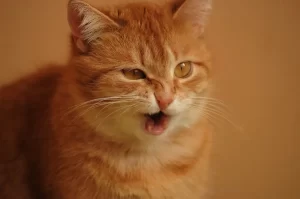
Environmental Modifications to Reduce Cat Sneezing
Environmental modifications can play a crucial role in managing cat sneezing. Here are some important environmental modification that can be helpful for cat sneezing:
- Dust control: Dust is a common allergen that can trigger sneezing in cats. Regular cleaning of the cat’s environment, including vacuuming carpets, floors, and furniture, using air purifiers with HEPA filters, and minimizing the use of dusty cat litter can help reduce the amount of dust in the air and potentially alleviate sneezing.
- Smoke exposure: Secondhand smoke from cigarettes or other tobacco products can irritate a cat’s respiratory system and trigger sneezing. Avoiding smoking in the home or around the cat, and ensuring proper ventilation to reduce smoke exposure can be beneficial.
- Allergen control: Cats can be allergic to various allergens such as pollen, mold, and dust mites, which can trigger sneezing. Identifying and minimizing exposure to known allergens in the cat’s environment, such as keeping windows closed during high pollen seasons, using hypoallergenic bedding and cleaning products, and regular cleaning of the cat’s belongings, can help reduce allergen exposure and sneezing.
- Indoor air quality: Poor indoor air quality can contribute to respiratory issues in cats, including sneezing. Ensuring proper ventilation, using air purifiers with HEPA filters, and minimizing the use of strong-smelling household chemicals can help improve indoor air quality and reduce sneezing.
- Environmental enrichment: Enriching the cat’s environment with stimulating toys, scratching posts, and opportunities for exercise and mental stimulation can help reduce stress and strengthen the cat’s immune system, potentially reducing sneezing triggered by stress-related factors.
- Temperature and humidity: Maintaining a comfortable and appropriate temperature and humidity level in the cat’s environment can help prevent dryness of the nasal passages and reduce sneezing. Using a humidifier or a dehumidifier as needed, and ensuring the cat’s living space is kept at an appropriate temperature can be beneficial.
The Role of Hygiene Practices in Cat Respiratory Health
Maintaining good hygiene practices for cats is crucial in preventing respiratory issues and reducing sneezing. Here are some important points to consider:
- Regular grooming: Regular grooming practices, such as brushing your cat’s fur, trimming their nails, and cleaning their ears, can help prevent the accumulation of dust, dirt, and allergens on their fur and skin, which can trigger sneezing. It also helps to keep their coat healthy and free from matting, which can contribute to respiratory issues.
- Cleaning their living environment: Regularly cleaning the cat’s living environment, including their litter box, bedding, and toys, can help reduce the accumulation of dust, allergens, and other irritants that can trigger sneezing. Using unscented and hypoallergenic cleaning products and avoiding the use of strong-smelling chemicals can also be beneficial in maintaining a clean and healthy environment for your cat.
- Preventing overcrowding: Overcrowding in multi-cat households or living in close quarters with other animals can contribute to the spread of respiratory infections among cats, leading to sneezing. Providing enough space, separate resting areas, and minimizing stressors such as competition for resources can help reduce the risk of respiratory infections and sneezing.
- Hand hygiene: Practicing good hand hygiene before and after handling your cat can help prevent the transmission of germs and reduce the risk of respiratory infections. Washing your hands thoroughly with soap and water for at least 20 seconds before and after handling your cat, especially if they are sneezing or showing signs of respiratory issues, can be beneficial.
- Dental care: Dental hygiene is an essential part of overall cat health. Poor dental health can lead to oral infections that can potentially spread to the respiratory tract and trigger sneezing. Regular brushing of your cat’s teeth, feeding them a healthy diet that promotes dental health, and consulting with your veterinarian for dental care recommendations can help prevent dental-related respiratory issues.
- Preventing exposure to sick cats: Keeping your cat away from other cats that are showing signs of respiratory infections, such as sneezing, coughing, or nasal discharge, can help prevent the spread of infections and reduce the risk of sneezing in your cat.
Soothing Sniffers: Essential Oils for Cat Sneezing Relief
Aromatherapy is a popular home remedy that involves the use of essential oils derived from plants to promote health and well-being. However, it’s important to note that not all essential oils are safe for cats, as cats are more sensitive to certain oils compared to humans and other animals. Here’s what you need to know about using aromatherapy for managing cat sneezing:
- Safe essential oils: There are a few essential oils that are generally considered safe for use with cats. These include lavender, chamomile, and frankincense. However, it’s crucial to always dilute the essential oils properly and use them in moderation. It’s also important to avoid essential oils that are toxic to cats, such as tea tree oil, eucalyptus, and citrus oils, as they can be harmful and potentially trigger respiratory issues, including sneezing.
- Instructions and methods of application: When using essential oils for cats, it’s essential to follow proper dilution and application methods. Cats are highly sensitive to essential oils, and using undiluted oils or applying them directly on the cat’s fur or skin can cause adverse reactions. The recommended dilution for cats is usually one drop of essential oil mixed with 50 drops of a carrier oil, such as coconut oil or olive oil. Inhalation or diffusion methods, such as using a diffuser or adding a few drops of diluted essential oil to a bowl of hot water and allowing the cat to inhale the steam, are usually considered safer options compared to direct topical application.
- Potential risks and precautions: It’s important to be aware of potential risks and take necessary precautions when using essential oils for cats. Cats have a unique physiology and metabolism that can make them more susceptible to the toxic effects of essential oils, even if they are considered safe for other animals or humans. Essential oils can cause respiratory irritation, allergic reactions, and other adverse effects in cats, including sneezing. It’s also important to ensure that your cat has the option to move away from the area where the essential oils are being used, as some cats may be more sensitive to the smell of essential oils than others.

